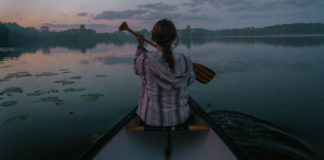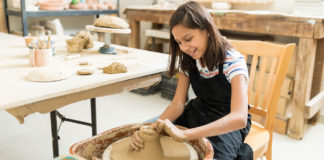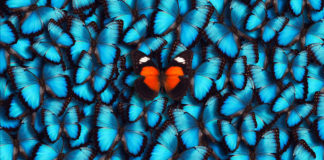A few things that help life make sense
I spoke very little in my early years and my mother says that my silence scared her. She never knew what was going through my mind. She was afraid I was hiding something.
The slalom between regrets and wrong estimates
In October 2012, Forbes magazine published a list of the top 25 biggest regrets people have. According to the magazine, the most significant regrets are those concerning relationships with family members and friends, regrets concerning oneself, and career regrets.
How to manage parent-child conflicts during the pandemic
One can hardly overestimate the role the relationship between a parent and their child plays in forming a matrix for the child’s future relationships, whether healthy or dysfunctional. The quality of the parent-child relationship is essential because it directly impacts the child’s social and emotional development, and its quality influences the child's ability to deal with future conflict.
One habit healthier. What we need to know about change
Let him that would move the world first move himself. – Socrates
How to embrace change without changing who we are
Change is the only constant in life, especially the kind that comes unexpectedly and makes us believe that we cannot give in to it without giving up on ourselves, or turning into something we are not.
I’m here! | friendship and interest in each other
I'll leave my heart as payment among the coins, and pass... – Nichita Stănescu
The basics of how to communicate effectively
Today, communication is becoming easier thanks to technology, which makes it faster and more accessible. Unfortunately, this does not necessarily mean that we know how to communicate effectively.
The “background noise” of free will
What would you say if you read an article that tells you that the human ability to make choices freely and consciously—that is, free will—might just be an illusion? What if the article backs up its claims with scientific research? Such curiosity is sparked by an article published on livescience.com.
Should I ever regret anything?
Two popular songs in the second half of the twentieth century have influenced entire generations, to this day, with a message we can call at least provocative: "Non, Je ne regrette rien" ("I do not regret anything"),[1] crooned to us by Edith Piaf, and "My Way", Frank Sinatra's melodic boast.[2]
Saving creativity
An experimenter is like a hunter who, instead of waiting quietly for game, tries to make it rise, by beating up the locality where he assumes it is. – Francis Bacon, 17th-century English philosopher
I love you for your flaws too
Love is the most beautiful and perhaps the most incomprehensible thing in the world. We find it in movies, in books, in the strength of a "yes" declared before the civil authorities, and in the embrace that binds spouses at the end of a hard day's work.
Most wanted words | Friendship and edifying conversations
The face muscles relax, and the eyes become empty before boredom urges them to seek another centre of interest. The restlessness culminates with some leaving and others immersing themselves in the exploration of their phones. Others seek to divert the discussion with a joke or hasten its end through a detached or ostentatious silence.
Living with fewer regrets
No one can live life without gathering regrets. An opportunity missed. A situation handled poorly. A conversation you wished you’d had before things got out of control. All of us have done more than enough to cringe in the dark about. But there are ways to have fewer regrets. Here are seven.
Love and the second “Yes!”
They have read that love lasts for two or three years, and although they’ve gathered every possible argument why it wasn't the case for them, they couldn't get the possibility out of their minds altogether.
The #selfcare epidemic
In times of anxiety and insecurity, the ways in which we are encouraged to care for our emotional and mental health can become mere trends that come and go in waves, taking with them our money, time, and hope—and sometimes leaving us in a state which is at least as bad as what we were in originally.


























